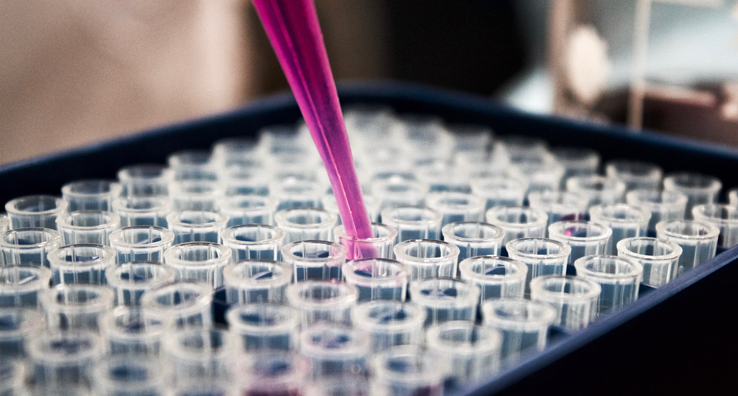Immunogenicity assays to detect anti-drug antibodies (ADAs) and neutralizing antibodies (NAbs) to support global nonclinical and clinical studies
Immunogenicity assays are integral to biologic drug and vaccine development. Biotherapeutics, such as proteins, antibodies, conjugated peptides, or oligonucleotides can induce an immune response in the body, leading to the development of anti-drug antibodies (ADAs). The neutralizing fraction of ADA (NAb) may not only decrease the therapeutic activity but can potentially threaten patient safety. Assessment of immunogenicity, i.e. formation and persistence of ADA and NAb is a fundamental and crucial part of drug development.
Immunogenicity assays can be challenging due to interferences originating from the sample matrix, drug interference, or target interference. You will need to obtain rigorous data through highly sensitive and precise assays. Selection of the correct positive control and assay format, as well as assay optimization and validation, may all present challenges. Refinement of the assay may be needed to ensure suitability throughout the drug development lifecycle and post-marketing surveillance. As such, you need an experienced partner to develop and implement your immunogenicity testing strategy to meet all safety and regulatory requirements.
Our immunogenicity assay experts utilize a multi-tiered approach to measure ADAs and NAbs, and are experienced in the development and validation of qualitative and quasi-quantitative immunoassays. The first tiers are focused on detecting anti-drug antibodies (ADAs) that bind to the biologic drug. Samples are first screened for the presence of antibodies, followed by antibody titer assessment and confirmation of the specificity of binding. Confirmed positive ADA samples are then analysed for the presence of neutralizing activity in a NAb assay.
Immunogenicity assessment of NAb activity can be performed by utilizing a cell-based assay or a competitive ligand binding assay (LBA). Cell-based neutralization assays are preferred by regulatory authorities, as they offer functional insight into compound activity within a biological context. However, in some cases, for example, where the drug is soluble, or where no appropriate cell-based system is available, an LBA assay can be an acceptable option. Our Good Laboratory Practice (GLP) compliant immunogenicity laboratories are equipped with immunoassay platforms such as Quanterix, ELISA, Electrochemiluminescence (ECL), and cell-based neutralization assays.
Immunogenicity Assessment Laboratory Services
- Development and validation of qualitative and quasi-quantitative assays for total antibody detection. Formats utilize a three-tier approach (screen, confirmatory/specificity, then titer) that includes statistical cut-point analysis
- Multiple assay formats available: direct or bridging ELISA, direct or bridging ECL
- Approaches to increase drug tolerance: MSD Bridging Mastermix with acid dissociation, ECL/ELISA based Solid phase extraction with acid dissociation (SPEAD), Affinity Capture Elution (ACE), “BEAD” (use of nanoparticles or magnetic beads) assays
- Development and validation of cell-based assays, receptor binding assays or competitive ligand binding assays for detection of neutralizing antibodies
- Integration of pharmacokinetic (PK) and immunogenicity results in animal and human studies
Expert Immunogenicity Strategy, Design, and Implementation
With Intertek’s Bioanalysis Services, you gain an experienced partner who is knowledgeable in developing global immunogenicity programs. Each project presents its own unique set of challenges, and our principal investigators and lab scientists will work closely with you to ensure that your assays are properly developed and validated to meet all regulatory requirements. Through efficient management and proactive communication, we will help you achieve your immunogenicity testing goals over your product’s development lifecycle.
Large Molecule Bioanalytical Services

